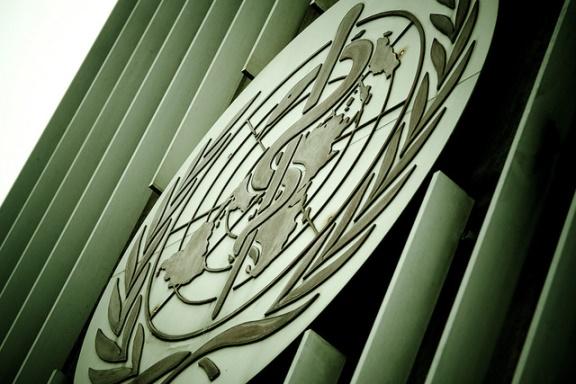The World Health Organization (WHO) announced today that its Zika emergency committee, which met yesterday, has recommended keeping the public health emergency in place, as the US Centers for Disease Control and Prevention (CDC) announced $2.4 million in funding to help five of the nation's most populated cities detect and manage Zika-related birth defects.
In other new Zika developments, the CDC announced a formal research collaboration with Colombia, Singapore reported more Zika cases, and researchers revealed possible differences in brain cell infections between the two Zika lineages.
WHO panel cites virus spread, research gaps
The Zika emergency committee met yesterday for the fourth time, and committee chairman David Heymann, MD, detailed the deliberations today at a media telebriefing. He said given that the virus continues to spread to new regions and that there are still major knowledge gaps, the event still constitutes a public health emergency of international concern (PHEIC) as defined by the International Health Regulations. He is with the London School of Hygiene and Tropical Medicine.
He said the group heard from experts and representatives from Brazil, Singapore, and the United States, and that WHO Director-General Margaret Chan, MD, MPH, has accepted the committee's recommendation.
Experts have learned a lot about the virus over the past 7 months, but there are still major questions, such as understanding the two different Zika virus lineages and whether infection with one offers any cross-protection against the other and if there are any cofactors that make the disease and its complications more severe.
"It's an extraordinary event that is rapidly becoming an ordinary event," Heymann said.
The committee congratulated Brazil for the public health measures it took to minimize the threat of the virus during the recent Olympic Games, noting that so far, no Zika infections have been confirmed in participants or spectators. Heymann also lauded Singapore for its quick response and transparency regarding its newly emerging outbreak.
He told reporters that genetic sequencing is under way to determine if Singapore's outbreak is fueled by the Asian lineage responsible for the epidemic in the Americas, with preliminary results expected as soon as this weekend.
Emergency committee members also emphasized the importance of preparing lower-resource countries to identify and manage Zika virus complications.
CDC funds for microcephaly, birth defects
The CDC's $2.4 million funding announcement today includes Chicago, Houston, New York City, Philadelphia, and Los Angeles County. In a press release the agency said the support will help highly populated jurisdictions conduct surveillance for microcephaly and other birth defects as part of state efforts.
Cities and their amounts are:
- Chicago: $200,000
- Houston: $400,000
- New York City: $700,000
- Philadelphia: $345,000
- Los Angeles County: $720,000
The new awards are designed to help the cities enhance real-time, population-based monitoring for Zika-related birth defects, support needed partner collaboration and infrastructure improvements, provide referrals for affected babies and families, participate in CDC reporting, and expand monitoring of children born to potentially Zika-infected mothers.
The money comes on top of $16.4 million the CDC announced in August to help states and territories with Zika-related adverse pregnancy outcome surveillance.
The CDC said it has already allocated $193 million of the $222 million in repurposed money, much of it previously earmarked to fight Ebola. Of the money spent as of Aug 26, $110 million has been invested to help states, territories, and cities fight Zika. Earlier this week CDC Director Tom Frieden, MD, MPH, warned that the agency will soon run out of money if Congress doesn't act soon on a funding package when it returns next week from its summer break.
The US Department of Health and Human Services (HHS) has already obligated $264 million of the $374 million it received from the repurposed funding, the CDC said in its press release today.
CDC-Colombia effort, Singapore cases, brain cell infection
- The CDC's Frieden and the head of Colombia's National Health Institute, Martha Lucia Ospina Martinez, MD, MPH, MBA, have signed a memorandum of understanding to collaborate on Zika response activities, including the effects of Zika during pregnancy, the CDC announced in a statement today. Since February the CDC and Colombia have been working to enhance surveillance for pregnant women affected by Zika virus at three sites in Colombia and will soon launch a prospective study to probe the longer-term effects of Zika during pregnancy. The CDC said more than 102,000 people have been infected in Colombia since October 2015, including more than 18,000 pregnant women.
- Singapore's health ministry today announced 38 more Zika virus cases, raising the country's quickly rising total to 189. In a daily update, officials said 34 of the cases are linked to known clusters and 4 don't have links to known clusters.
- Experiments on neural progenitor cells that compared their susceptibility to Asian and African Zika lineages as well as dengue virus found that both Zika types can infect and cause cell death. But the Asian virus has a more potent effect on genes involved in cell response to viral infection. The study, published Aug 31 in Nucleic Acid Research and summarized yesterday in an Emory Health Sciences press release, revealed that dengue can also infect neural progenitor cells, but it doesn't stunt growth or kill them. Researchers also identified a gene pathway that might be a useful target for a drug to help protect brain cells from Zika virus.
See also:
Sep 2 WHO press release
Sep 2 CDC press release





















